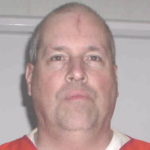 Ariel Castro has accepted a plea deal for the horrific crimes he committed against Amanda Berry, Gina De Jesus, and Michelle Knight. He must spend the rest of his life plus one-thousand years in a penitentiary. The extra time is to be applied consecutively, meaning that clock doesn’t even start ticking until he dies. Under the deal, he agreed to plead guilty to 937 felony counts. He will not stand trial and he will not face the death penalty. He will never receive a parole hearing and will die in prison, or as the Cuyahoga County prosecutor said, “He’s never coming out except nailed in a box or in an ashcan”.
Ariel Castro has accepted a plea deal for the horrific crimes he committed against Amanda Berry, Gina De Jesus, and Michelle Knight. He must spend the rest of his life plus one-thousand years in a penitentiary. The extra time is to be applied consecutively, meaning that clock doesn’t even start ticking until he dies. Under the deal, he agreed to plead guilty to 937 felony counts. He will not stand trial and he will not face the death penalty. He will never receive a parole hearing and will die in prison, or as the Cuyahoga County prosecutor said, “He’s never coming out except nailed in a box or in an ashcan”.
We must hope that he is housed under the worst conditions possible and that his remaining years are hopeless, lonely, and isolated. He is such a dangerous criminal and such a despicable human being that he should have severely limited access to the outside world. Ariel Castro is the worst kind of sexual predator: it is as if he were regurgitated from the bowels of Hell, and the sooner he returns the better off we all will be.
A statement issued through the law firm that is representing the victims said that, “Amanda, Gina, and Michelle are relieved by today’s plea. They are satisfied by this resolution to the case, and are looking forward to having these legal proceeding draw to a final close in the near future.” They must take great relief from the fact that Castro will never have another opportunity to harm an innocent human being.
I’m sure the victims are relieved that they have been spared from having to testify against Castro in court, but they still have the option of making victim impact statements at his sentencing hearing on August 1. Castro had too much influence over their lives for far too long, so I would not be surprised if they decline the opportunity.
As society collectively sighs in relief that a twisted pervert like Castro in finally being removed from the system, we gasp in disbelief to find that Vermont is releasing a pedophile so dangerous that the Vermont Department of Corrections department is warning citizens to keep a keen eye on blond haired, blue eyed boys between 12-13 years old.
In 2001, 40-year-old Timothy Szad was convicted in a sexual assault against a 13-year-old boy. He pled guilty to grabbing the boy, who was fishing on the bank of the Williams River, carrying him across the river, handcuffing him to a tree and sexually assaulting him twice. He was facing life in prison but took a plea deal. Unlike several other states Vermont does not have a Civil Commitment Law that allows sex offenders who are considered to be a continued threat to society to be maintained in custody once they have finished their prison sentence, so they have no option other than to release him. However, they are so convinced that he is a continuing threat that the Vermont Department of Corrections has warned the public that Szad would most likely target “male strangers between the ages of 12 and 13, in particular those with blond hair and blue eyes.”
Vermont ACLU executive director Allen Gilbert believes that the public simply needs to accept that sex offenders like Szad get out of prison when they complete their sentences. “We live in a society that operates by the rule of law and courts have determined the appropriate sentence for him, he’s served his sentence, and now he’s getting out.” He doesn’t care that the constitutionality of Civil Commitment Laws has been upheld by the United States Supreme Court. Neither does State Rep. Alice Emmons, a Springfield lawmaker who chairs the House committee that oversees Vermont’s prisons. She too opposes civil commitment laws. “You’re holding someone who has not committed a (new) crime. Do we as a society in Vermont want to do that?” she asked.
No, Mr. Gilbert and Ms. Emmons apparently prefer another approach. The residents of the city where Szad was to be released became so incensed and vocal that the home that was going to house him rescinded the offer. Instead, he will be released to an undisclosed location in California. I live in California and am incensed that Vermont has chosen to export their 6′ 5″, 255 lb. pervert to California where he can prey on our sons.
State hospitals have been seeking a cure, or even a viable way to control, sexual predators for decades to no avail. Here is what’s clear: When pedophiles and psychopaths have been identified, we need to prosecute and lock them up as well as have a means of maintaining them in confinement until they no longer pose a threat to society. That can mean life in prison, or barring that states need a civil commitment law that ensures that dangerous sexual predators are maintained in a restricted environment. Sending home grown perverts across the country is not an answer.
The primary duty of government is public safety, not ensuring that an incurable predator gets a second or third chance because the ultimate endgame of that strategy is continued victimization.
If you are a California resident and believe that an injustice has been done, please contact Vermont Governor Peter Shumlin. His phone number is (802) 828-3333.









